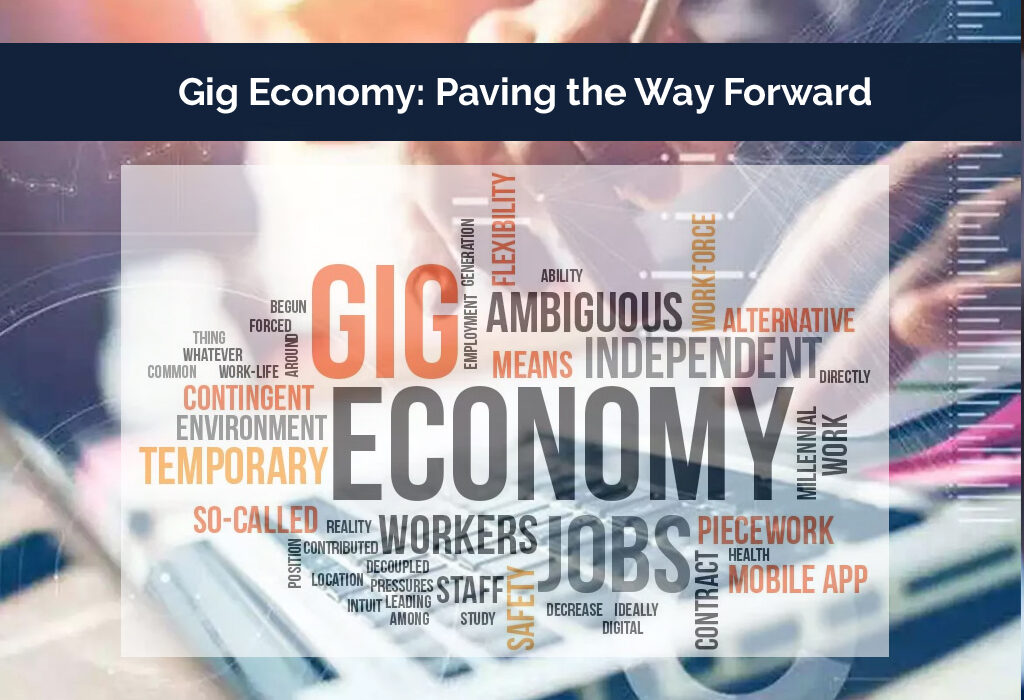Scale your Business by Employing Gig Workers
A parallel economy has been around for quite some time known as the gig economy. ‘Gig’ is a slang for a job that lasts for a limited time period. These are odd bits of work performed by freelancers, independent contractors, project-based workers and temporary or part-time hires (gig workers) and these gig workers make up the gig economy.
A study by Intuit says 40 percent of American workers will become independent contractors by 2020. As per NACo , the U.S. gig economy workforce grew from 10.1 percent in 2005 to 15.8 percent in 2015. The following year, 24 percent of Americans reported that some part of their earnings were from the “digital platform economy.” The number of self-employed individuals (many of whom are independent workers in the gig economy) soared by over 19 percent from 2005 to 2015, with great variation across the country. At the same time, the gross receipts of these independent workers grew by nearly 21 percent. The South
saw the largest growth in the number of self-employed individuals (27 percent), followed by the West (21 percent). Revenue also increased the fastest in the South (23 percent), followed closely by the Northeast (21 percent) and the West (20 percent).
Now, let’s answer some questions that will help resolve your queries regarding the gig economy.
Q. How is a gig worker different from a traditional employee?
A gig worker is on a temporary work engagement and paid only for that specific job. Employees have to be provided with W2 forms from their employers and other benefits like deducting payroll taxes, coverage under minimum wage and anti-discrimination laws. In case of independent contractors, they are provided with 1099 forms for performing services. Payroll taxes and other rules and regulations governing employees do not apply here.
Q. How has the SARSCoV-2 pandemic paved the way for gig workers?
The pandemic has proved that digital technology has enabled people to work safely from almost anywhere. Work has become independent of a worker’s physical location. There has also been a decline in jobs, as software has replaced many types of work to maximize time efficiency. Apart from these, there are financial pressures on business, entry of millennial generation into the labor force. All these factors have led to freelancers being able to opt for wider work options than before.
Q. What are the benefits of being a part of the gig economy for businesses and independent contractors?
Businesses
- Save costs related to renting/buying an office space
- Save on training unskilled employees
- Hire specialists/experts on a contractual basis for specific projects that could have been very
expensive on a full-time basis
Independent Contractors/Gig Employees
- Attain work-life balance which is difficult to attain in most jobs
- Selecting work of interest than being forced to work in a position which is not to one’s liking
As we can see from the above, the gig economy is slowly becoming a part of the cultural and business environment which also includes sharing economy, gift economy and barter economy. Now, the two obvious questions that remain unanswered are:–
Q How do I (an employer) locate and secure talent for my specific business needs?
RulesIQ helps you in finding the right talent in technology, digital transformation, and user experience. Whether you are looking for full-time talent or contract workers or somewhere in between; we have a ‘MatchIQ’ model for you that can be tailored to fit your needs.
Q How do I (an independent contractor) contact and offer my services to businesses that require my specific talent?
RulesIQ helps you in securing the best jobs in technology, big data/analytics, cloud, and much more. You can register yourself on our job portal and get notified of suitable job openings.

